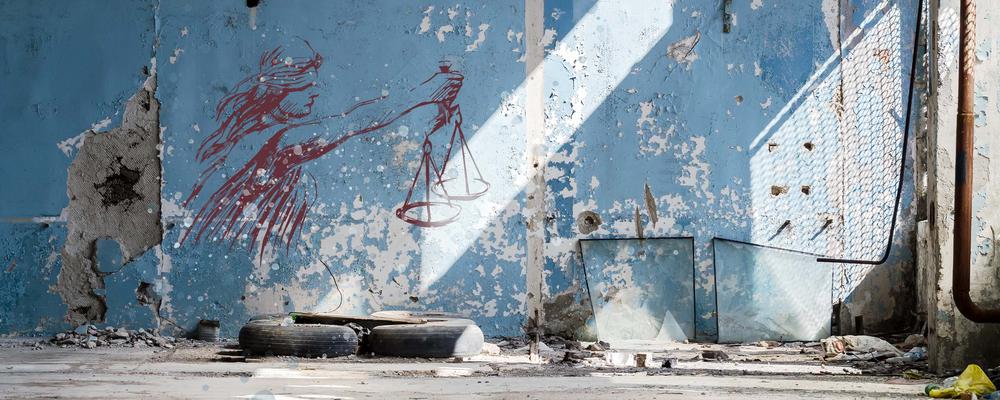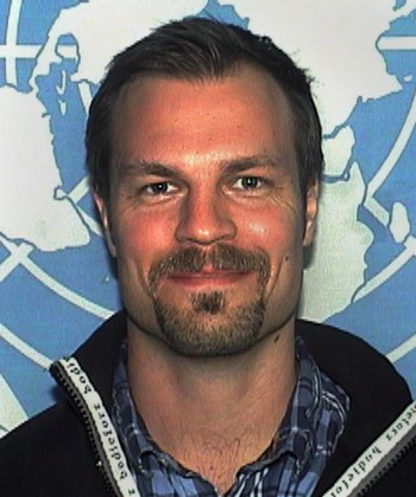
Joakim Dungel Lectures in International Justice
The Joakim Dungel Lectures in International Justice were founded in memory of Joakim Dungel, an alumnus of Gothenburg University, with the aim to deepen our understanding of justice-related issues world by analysing them through an international law lens.
Joakim Dungel, an alumnus of Gothenburg University (Jur kand. '04) and New York University (LL.M. '07), was killed on 1 April 2011 in Mazar-i-Sharif, Afghanistan, where he was working as a human rights legal officer for the United Nations.
In Joakim's brief existence, he blazed the trails of international justice, working for the United Nations International Criminal Tribunals for the former Yugoslavia and Rwanda, the Special Court for Sierra Leone, the Temporary International Presence in Hebron, and the United Nations Assistance Mission in Afghanistan.
Joakim was also a prolific author and published scholarly works on a wide range of issues, including command responsibility, the protection of national security interests, the right to humanitarian assistance during internal armed conflicts, and crimes against humanity.
For the purpose of honouring Joakim's life and work, Joakim's family and friends have, together with Gothenburg University, instituted the annual Joakim Dungel Lectures in International Justice, at which leading scholars and practitioners in the field of international human rights, international humanitarian law, and international criminal law will present lectures that seek to advance the bounds of our knowledge in order to bring justice to those in dire need.
2026 Lecture
A Case for Justice? The Role of International Law and Justice in a Changing Global Landscape
The role of international law, especially international humanitarian law and international criminal law, in protecting civilians in conflict and promoting accountability after conflict has been a recurrent topic of the Joakim Dungel Lectures of International Justice. Over the past 15 years, we have explored changes in international humanitarian law, progress on prosecuting sexual and gender-based war crimes, environmental war crimes, and the role of international criminal law.
With the help of speakers who have contributed to past lectures, this year’s panel discussion takes stock of past decades’ developments of international law and investigates future spaces for justice in a changing global landscape.
Date: 20 February 2026
Location: Online
Past Lectures
The Association in Memory of Joakim Dungel
Mission Statement:
Joakim Dungel, an alumnus of Gothenburg University (Jur. Kand. '04) and New York University (LL.M. '07), was killed on 1 April 2011 in Mazar-i-Sharif, Afghanistan, where he was working as a human rights legal officer for the United Nations. In Joakim's brief existence, he blazed the trails of international justice, working for the United Nations International Criminal Tribunals for the former Yugoslavia and Rwanda, the Special Court for Sierra Leone, the Temporary International Presence in Hebron, and the United Nations Assistance Mission in Afghanistan. Joakim was also a prolific author and published scholarly works on a wide range of issues, including command responsibility, the protection of national security interests, the right to humanitarian assistance during internal armed conflicts, and crimes against humanity.
For the purpose of honouring Joakim's life and work, the non-profit Association in Memory of Joakim Dungel (Sw. Föreningen Joakim Dungels Minne, ideell förening) has been founded.
The association aims to foster involvement, education and the spreading of information within Humanitarian Law; Human Rights; International Law; and on democracy issues in accordance with the values expressed in the United Nations Conventions. The association is a non-profit organisation without religious or political affiliation.
The association will work for those issues related to Humanitarian Law, Human Rights and International Law that Joakim was committed to and worked for. Annual lectures are held at Gothenburg University to foster dialogue around the issues outlined above. Leading scholars and practitioners in the field of international human rights, international humanitarian law, and international criminal law will present lectures that seek to advance the bounds of our knowledge in order to bring justice to those in dire need. In the future the association will strive to provide monetary means to students and others who share Joakim’s commitment and wish to prosper within the issues that the association works for.
Support us
For the purpose of honouring Joakim's life and work, the non-profit Association in Memory of Joakim Dungel (Sw. Föreningen Joakim Dungels Minne, ideell förening) has been founded.
The association aims to foster involvement, education and the spreading of information within Humanitarian Law; Human Rights; International Law; and on democracy issues in accordance with the values expressed in the United Nations Conventions. The association is a non-profit organisation without religious or political affiliation.
Do you want to be a contributing member?
You can support us by donating to Föreningen Joakim Dungels Minne. Direct your contribution to BG 119-4406. For contributions from outside Sweden use IBAN: SE43 5000 0000 0500 3119 5709 and BIC: ESSESESS.
